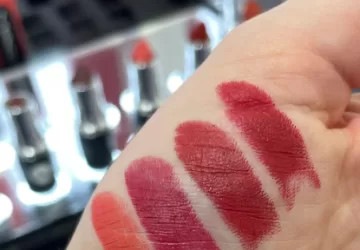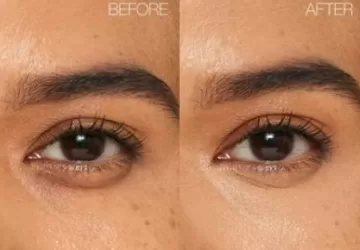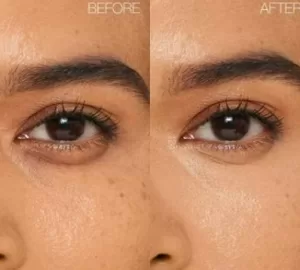From mass-market moisturizers to niche serums promising miraculous results, the skincare world has long been overflowing with options. But now, a powerful trend is reshaping how we approach beauty routines: personalized skincare innovations powered by AI. Instead of guessing which products will work best for your unique skin, artificial intelligence helps deliver hyper-customized solutions, bridging the gap between science and self-care.
Let’s explore how AI is transforming skincare and breaking barriers in the broader beauty industry.
Personalized skincare isn’t a fad—it’s a response to the realization that no two skins are the same. Genetics, environment, lifestyle, diet, and even stress levels affect our skin’s behavior. Traditional, one-size-fits-all products often fall short because they don’t consider these variables.
Enter AI-driven beauty solutions. Leveraging data, machine learning, and advanced algorithms, these tools evaluate a user’s unique skin profile to recommend tailor-made products and routines.
Best Personalized Skincare Innovations
Let’s dive into some of the most impactful and futuristic skincare innovations leading the personalization revolution:
AI-Powered Skin Analysis Tools
Brands like L’Oréal’s Skin Genius and Neutrogena Skin360 have introduced apps that scan your face using your smartphone camera. These tools analyze texture, tone, wrinkles, and even hydration levels in real time.
Customized Serums and Formulas
Startups like Curology, Proven Skincare, and Function of Beauty ask users to complete a quiz covering skin type, lifestyle, and goals. Based on the results, they ship out custom-blended skincare formulas straight to your door.
DNA-Based Skincare Solutions
Brands like GeneU and Allél analyze your DNA to understand how your skin is genetically predisposed to aging, inflammation, and other concerns. This next-gen approach helps create deeply personalized anti-aging treatments.
Smart Skincare Devices
Think of AI-enhanced cleansing brushes and serum applicators like the FOREO LUNA or OPTE Precision System, which use sensors and cameras to target specific concerns and apply product with medical-grade precision.
Virtual Dermatologists
Apps like Roden + Fields’ AI Derm-Grade Consultation or HelloAva act as your skincare consultants, offering real-time advice based on AI algorithms and dermatologist-backed knowledge.
How AI Is Changing the Consumer Experience
Personalization is powerful because it transforms the user journey from confusing to empowering. With AI, skincare brands can:
- Recommend routines with higher accuracy
- Monitor skin progress over time
- Adjust regimens as your environment or habits change
- Reduce product waste and overconsumption
This tailored approach leads to higher consumer satisfaction, fewer allergic reactions, and better long-term skin health.
Breaking Barriers: Gender – Neutral Beauty Products
As skincare becomes more personalized, it’s also becoming more inclusive. Gender-neutral beauty products are at the heart of this transformation. These products are developed for humans, not “men” or “women,” and cater to skin type rather than gender.
Why This Shift Matters
The beauty industry is moving toward acceptance and identity diversity:
- Gen Z and Millennials value authentic self-expression.
- Over 50% of young consumers believe gender-specific marketing is outdated.
- Genderless packaging and messaging offer a more welcoming experience.
Examples of Gender-Neutral Brands
- One/Size by Patrick Starrr
- Fenty Skin by Rihanna
- Ordinary and Youth to the People
These brands focus on performance, sustainability, and personalization, not on gendered tropes.
Calling Out the Problem: Non-Inclusive Makeup Brands
As personalization and inclusivity rise, some brands have been slow to adapt. Consumers and influencers are increasingly vocal about non-inclusive makeup brands that fail to offer:
- Diverse shade ranges
- Products for sensitive or condition-specific skin types
- Gender-neutral marketing
Examples of Lacking Inclusivity
Some luxury brands still offer foundation ranges with only 5–10 shades, neglecting darker skin tones. Others use gendered packaging or language that alienates non-binary or male-identifying consumers.
The Impact of Exclusion
Non-inclusive brands:
- Lose customer trust
- Face backlash on social media
- Miss out on large market segments
- Appear outdated in a progressive industry
Why Inclusivity and AI Go Hand in Hand
AI doesn’t care about gender, race, or stereotypes – it cares about data. That makes it the perfect tool for driving inclusivity in beauty. A good AI system will:
- Analyze a wide variety of skin tones and types
- Learn from user behavior across demographics
- Offer unbiased, evidence-based recommendations
Challenges Facing Personalized Skincare
While exciting, this innovation comes with a few hurdles:
- Privacy concerns around facial scanning and data collection
- Algorithm bias if the training data lacks diversity
- Cost barriers, as DNA kits and custom products, may be expensive
Brands must address these issues with transparency, diversity, and affordability in mind.
The Future of Personalized, Inclusive Skincare
The future is looking bright—and tailored. In the coming years, expect more beauty brands to embrace:
- Real-time skin analysis via mobile AR
- Smart home skincare devices
- Eco-friendly packaging tailored to your needs
- Collaborations with dermatologists for safe personalization
Imagine a beauty routine that knows your sleep cycle, monitors the weather, and adapts your serum dosage accordingly. That’s not science fiction—it’s AI beauty.
Conclusion
Personalized skincare innovations, powered by AI, are redefining the rules of the beauty industry. By marrying technology with inclusivity, brands are creating a world where beauty is not just effective—but also accessible and empowering for everyone. Whether through DNA-tailored serums or gender-neutral product lines, this new era of beauty celebrates uniqueness, one data point at a time.
FAQs
AI-powered skincare uses algorithms and data analysis to recommend products tailored to your unique skin characteristics.
Yes, most are developed with dermatologists or skin experts and cater to individual sensitivities.
They remove outdated stereotypes and make skincare more accessible and inclusive for all gender identities.
Curology, Proven, Function of Beauty, and L’Oréal Skin Genius are leading the market in AI-based personalization.
Most reputable brands have secure data handling practices. Always check the company’s privacy policy before using their tool.
Yes, many platforms allow routine adjustments based on seasonal, hormonal, or lifestyle changes.
Popular search term:
मुंहासे के दाग | A Greener Path to Beauty | छोटे दाने कैसे हटाए | डॉक्टर पिम्पल्स क्रीम | चेहरे पर कील मुंहासे | चेहरे के गड्ढे | पिंपल हटाने का बेस्ट क्रीम |







